Kittens Need Different Food From Adult Cats
Feeding your kitten a nutritionally complete diet that is tailored to their specific needs is vital for supporting healthy development and laying the foundation for a healthy future.
As kittens are growing rapidly, and their digestive and immune systems are developing slowly, they have very specific nutritional needs that are different from adult cats. In particular, kittens need a diet with a higher energy and protein content, plus nutrients that support the immune system and the right balance of vitamins and minerals.
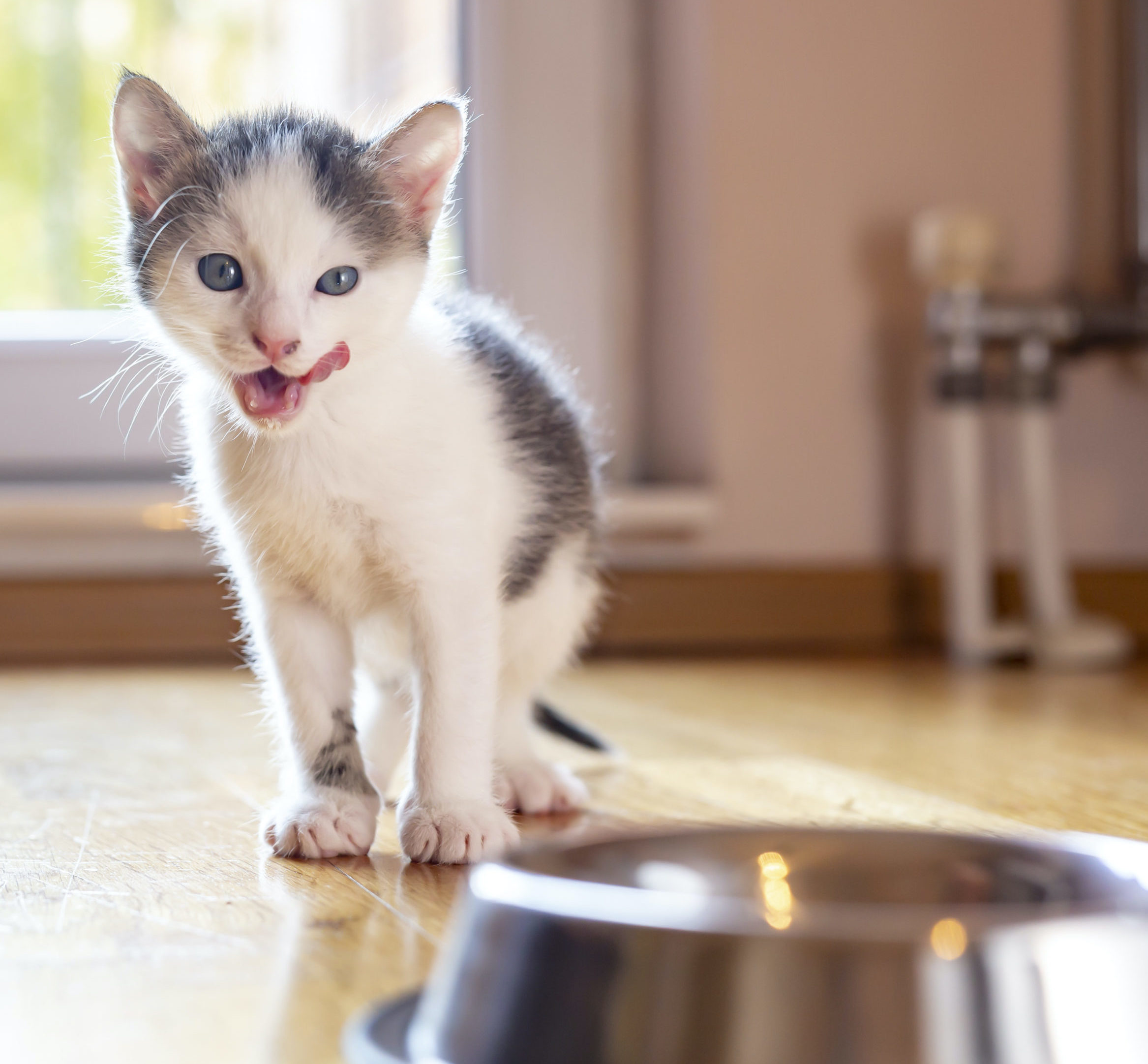
Why Your Kitten’s Diet is So Important
To help your kitten grow and stay healthy, it’s vital to provide food suitable for their age, lifestyle and specific nutritional needs. They need the right balance of proteins, fats, carbohydrates, vitamins, and minerals. Only a well balanced diet will provide essential amino acids such as taurine, which cannot be synthesized by the body.
Birth to 4 Months
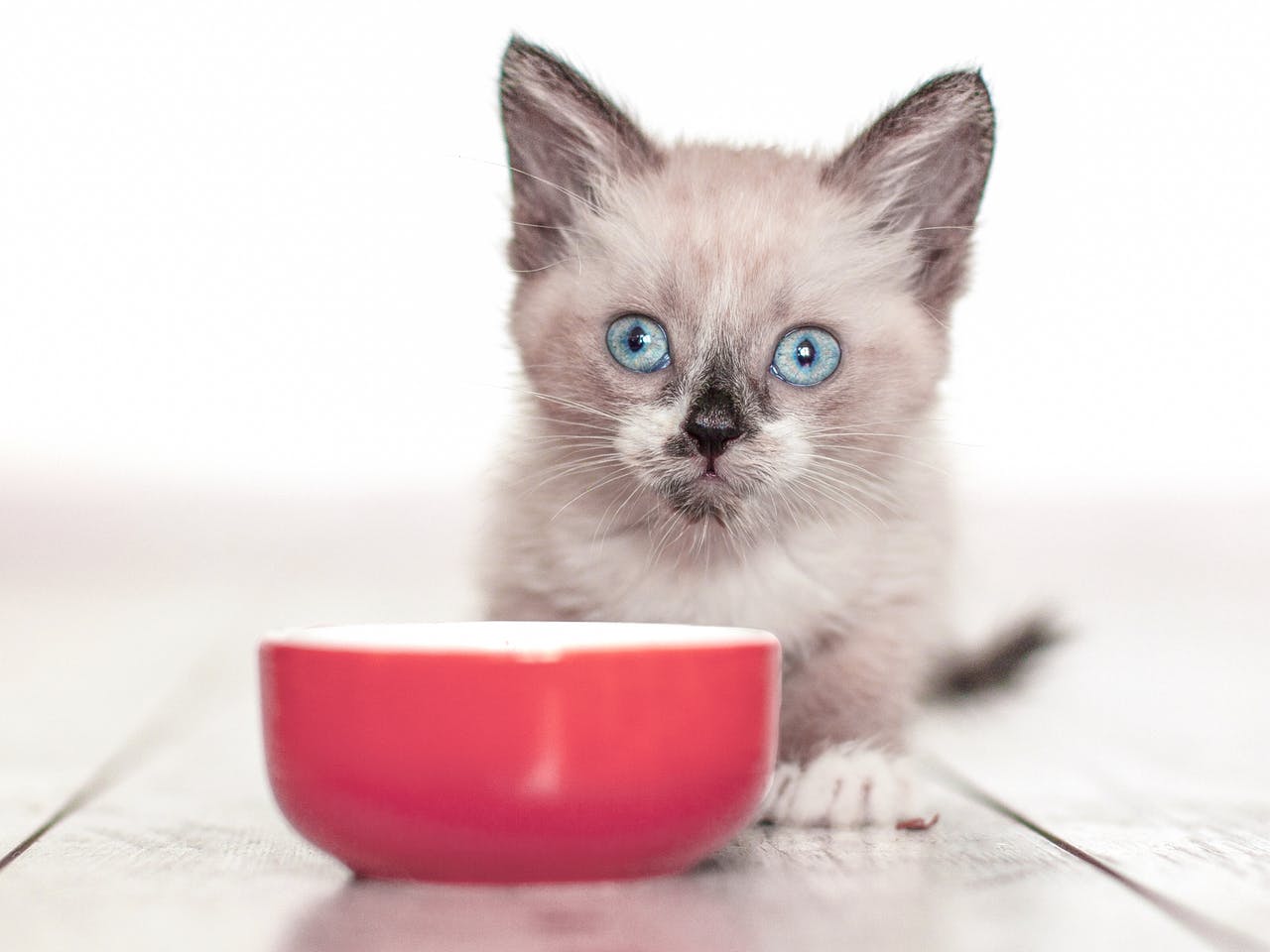
4 to 12 Months
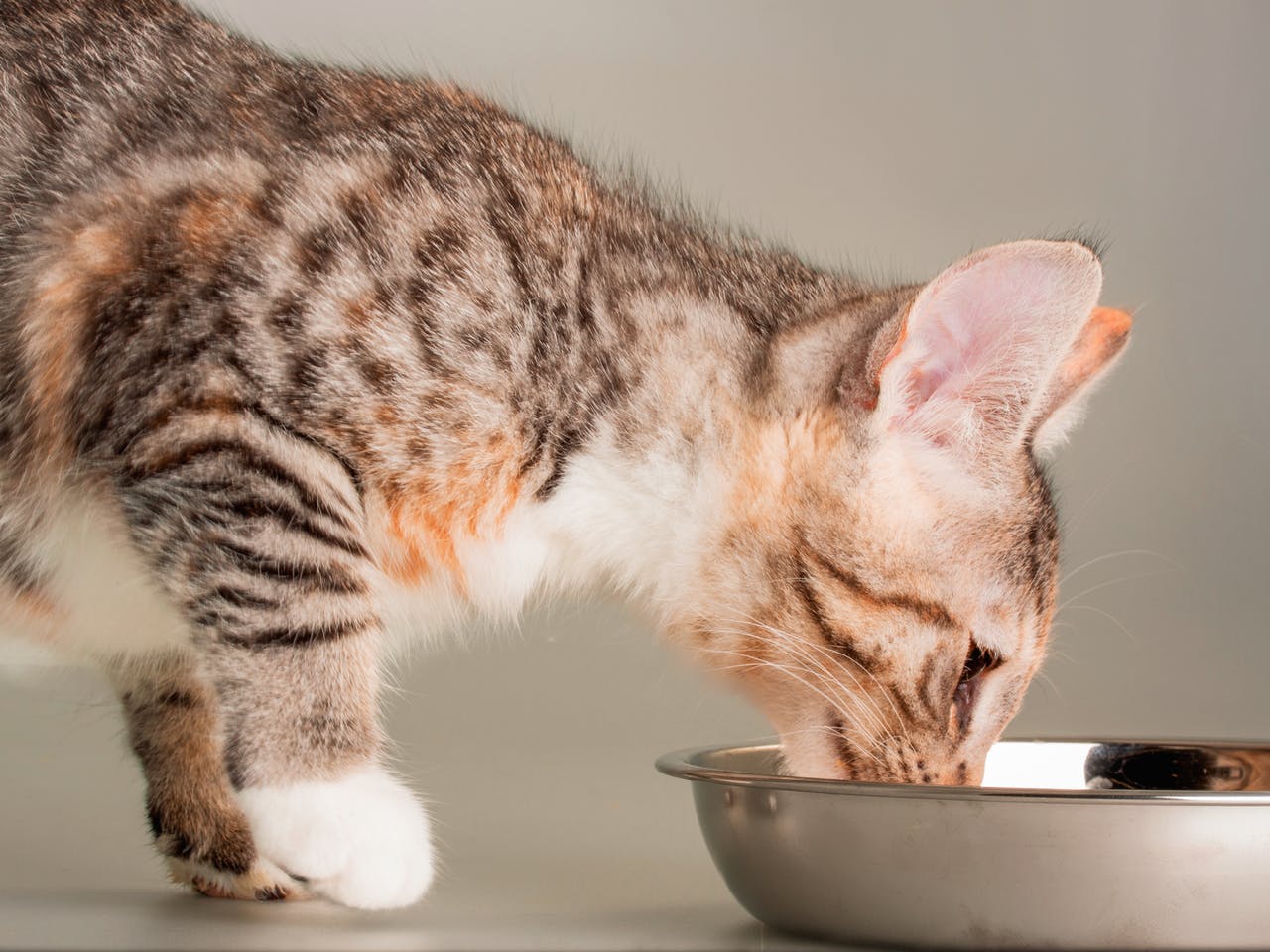
Your kitten’s digestive and immune systems are strengthening but still fragile. Their growth rate and energy needs begin to slow, but they still need easily digestible food designed for developing kittens.
Adult Cats
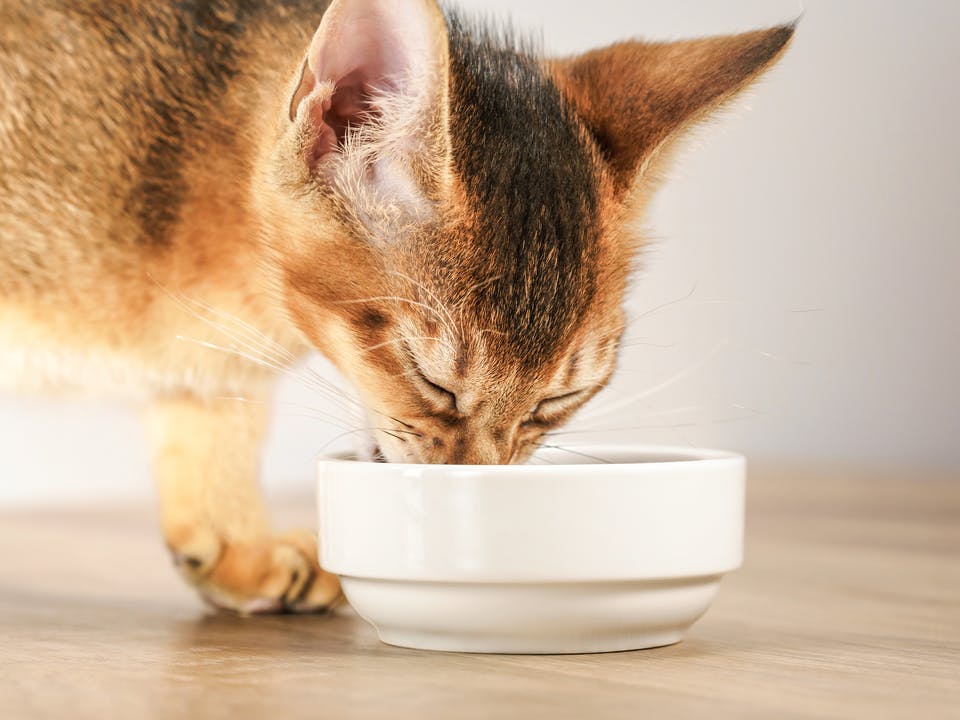
Nutrients for Healthy Growth
Your Kitten’s Feeding Schedule
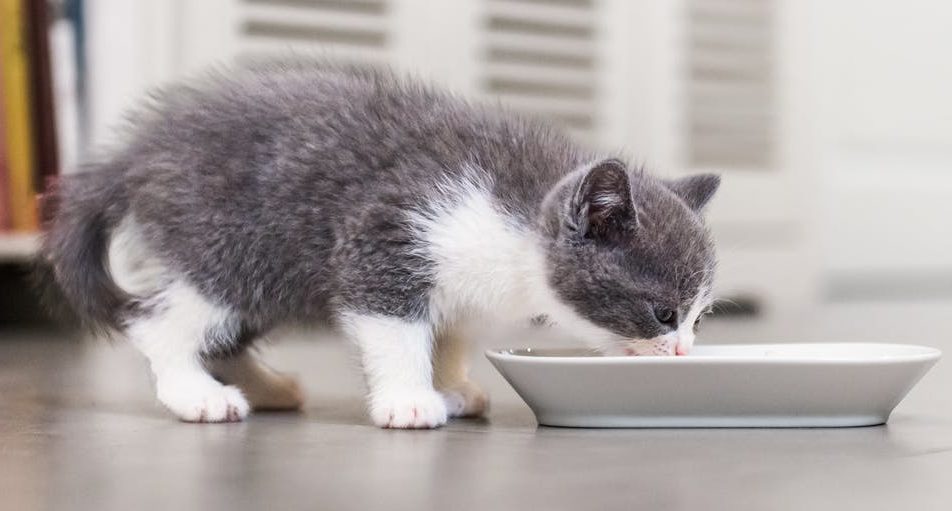
Create the Right Environment for Feeding Your Kitten
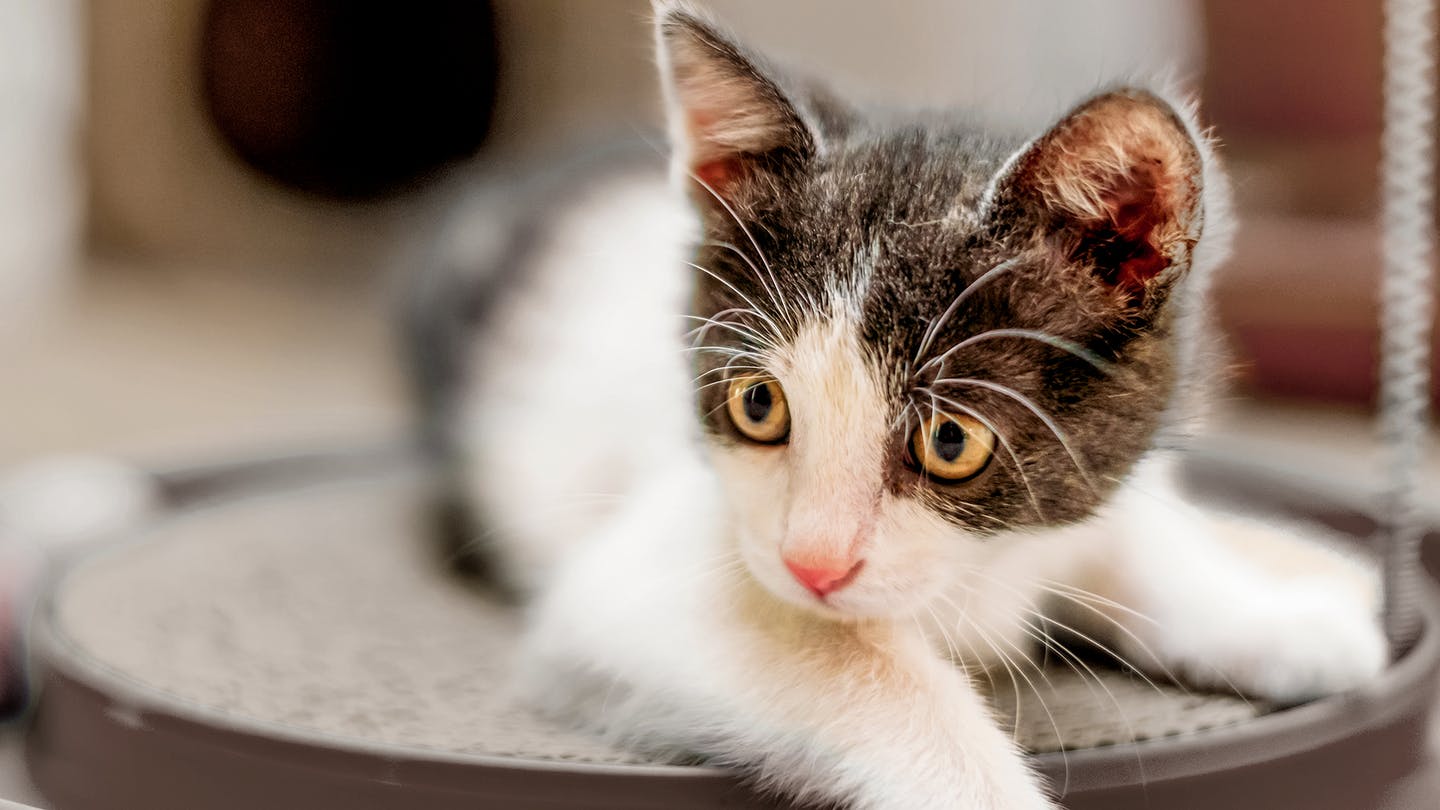
Cats are very sensitive and a variety of factors can create food aversion. They prefer to eat somewhere calm, out of sight, and with an easy escape route, and don’t like their food bowl being near their litter box. Keep your kitten’s food bowl away from their water bowl, too, to prevent the water becoming contaminated with food. And create their feeding area away from your own dining area so they’re not tempted to nibble at your meals.
Events such as strangers arriving, arguments, changes in lighting, and sudden noises may all affect how much your kitten eats, so keep disturbances to a minimum.
How Much Should My Kitten Drink?
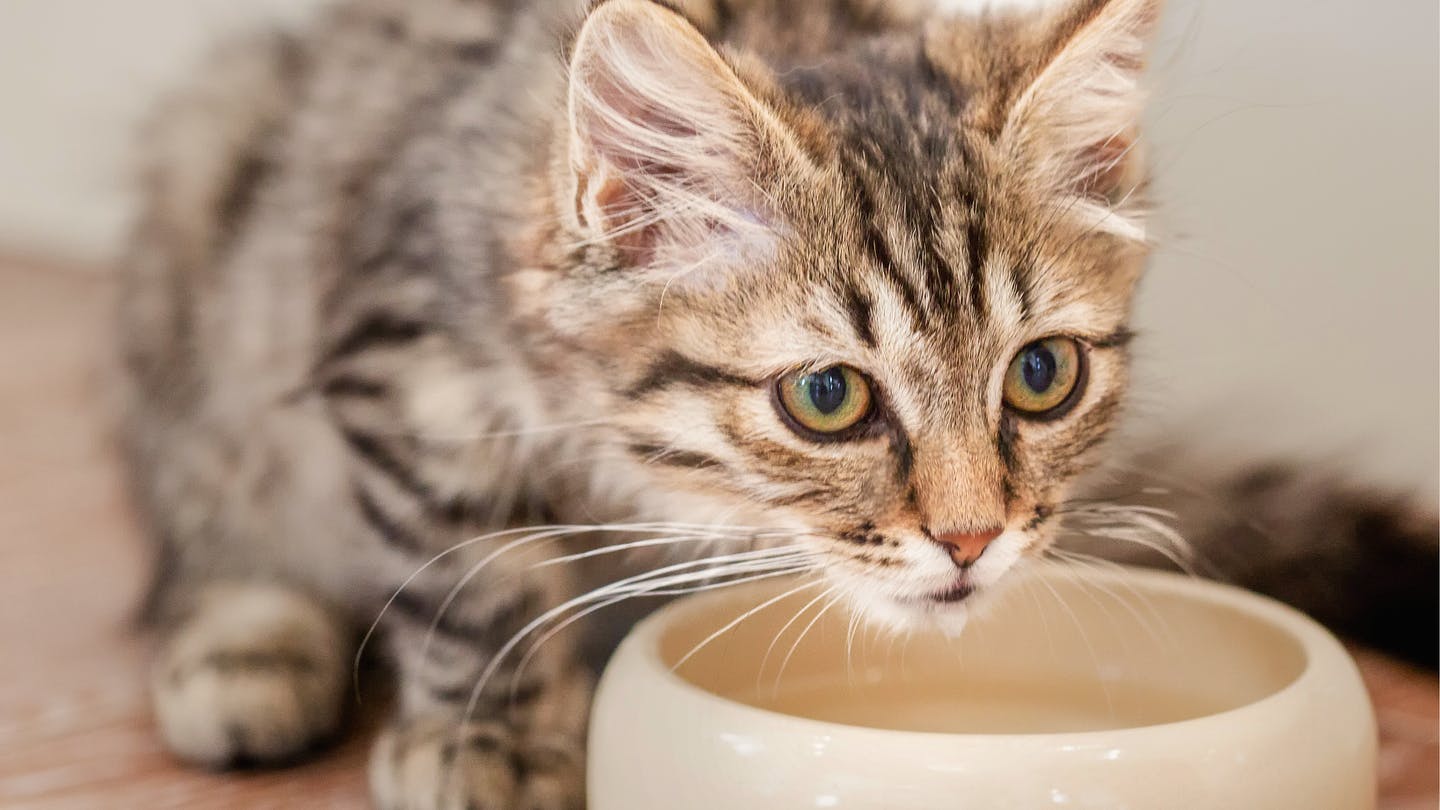
Cats generally need to drink around 60 ml or 2 oz per kg of body weight – either by drinking or through their food. The temperature, your kitten’s exercise levels, and their physical condition affects how much they need to drink, as well as their diet. A kitten fed dry kibbles (which contain around 10% water) will drink more than one fed with wet food (which contains around 80% water).
Why Can Mixed Feeding be Good for Kittens?
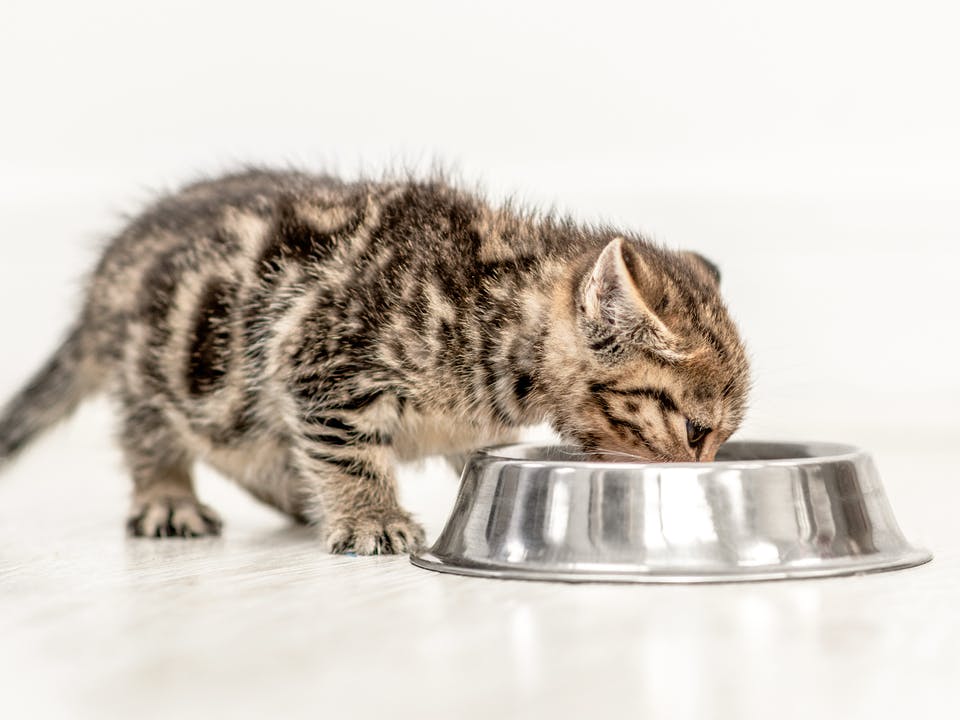
Mixed feeding is when you feed your kitten a combination of wet and dry food – either at the same meal or at separate meals. It can help to provide balanced nutrition and offer a variety of other health benefits, too. A cat’s dietary preferences are influenced by the routines established in their first year. So it’s good to offer your kitten a variety of foods early in life, while always introducing new foods gradually. An ideal time to start mixed feeding is between the ages of two and three months.
- Hydration: Canned wet food can provide a significant portion of your kitten’s recommended daily water intake.
- Palatability: Our wet formulas are designed to be highly appealing to the fussiest of kittens.
- Weight Management: Wet food’s high moisture content means you can serve a larger portion for the same number of calories.
- Dental Hygiene: Dry kibbles can help to keep your kitten’s teeth clean thanks to the brushing effect on their teeth as they chew.
- Natural Grazing: Providing dry food to nibble on throughout the day enables your kitten to follow their natural instinct to eat several small meals daily.
Any sudden changes in diet can cause digestive upsets and may make your kitten wary of their food. So it’s important to introduce new foods slowly during a week-long transition – whether you’re switching to adult food, changing products, or introducing mixed feeding.



